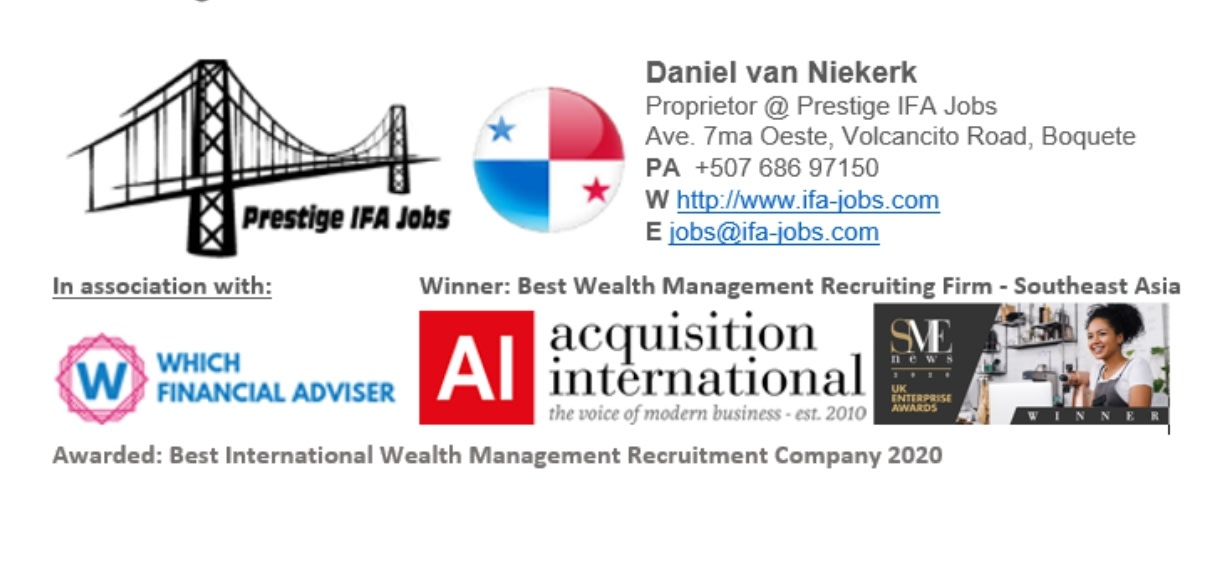If you're eyeing a career in international wealth management, you've probably heard the buzz: tax-free earnings, global lifestyles, and uncapped income potential. But the reality isn't always as glossy as it seems. Drawing from years of insider experience (including a decade as an advisor across four countries), here's a no-nonsense breakdown of how this industry operates. Whether you're a seasoned domestic pro from the UK, US, Australia, or elsewhere, or just dipping your toes in, this guide covers the essentials—recent changes included. Note: This focuses solely on international wealth management and investment advisory roles. If you're after accounting, corporate banking, or other financial gigs, this isn't the space. It's a Lifestyle, Not a Desk JobOffshore financial planning is more "freedom and flexibility" than "fixed salary and office hours." If you're craving a traditional 9-5 with a steady paycheck, this might not fit. Advisors here thrive on self-motivation, networking, and building client relationships—often in expat hubs like the UAE, Singapore, or Hong Kong. It's rewarding for those who hustle, but daunting if you're used to structured corporate life. Pro tip: Lower-wage institutional roles (e.g., in UAE banks) often go to talent from places like the Philippines or India. We're talking high-end advisory here. Visa and Nationality HurdlesDreaming of Europe or the UK? Reality check: Non-EU nationals rarely qualify for work permits unless you have EU residency ties (e.g., via spouse or family). Being an IFA isn't a "skills shortage" profession, so firms prefer local talent to avoid red tape. The UAE? Much easier—no such barriers. Exceptions are rare and reserved for top-tier pros: Chartered or CFP® holders with a transferable book of business. Research your eligibility via a quick Google search on work permits—don't assume. If you're from countries like India, Pakistan, Nigeria, or South Africa, EU/UK roles are typically off-limits due to government rules, not employer bias. Earnings: High Risk, High RewardSalaries? Not the norm. Most advisors are self-employed reps earning via commissions, with a shift toward fee-based or hybrid models in some firms. Expect uncapped potential: Good advisors pull in $150K–$500K+ annually, often tax-free in places like the UAE. That's more than many doctors or lawyers make worldwide. A few reputable firms offer retainers (e.g., around AED 6,000/~$1,400 monthly for IFAs, plus 20% on closed leads for BDMs). Others might salary experienced pros with AUM and Level 4+ quals—but they argue: If you're advising wealth, why need support? Bottom line: Diligence pays off massively, but it's not for the faint-hearted. No caps mean unlimited clients and income—if you deliver. Senior roles? Firms promote from within or poach offshore vets. Domestic experience doesn't always translate without networks. Who Thrives? Skills and QualificationsThis industry serves expats (mostly EU/UK/Western), so English is key—local languages help personally (taxis, shopping) but aren't required for work. Success hinges on:
Quals are non-negotiable: Aim for UK Level 4 via CII (cii.co.uk) or CISI (cisi.org). Once certified, you're job-ready. Opportunities and Real TalkThe allure? Helping expats with reputable, tax-smart products. But it's competitive—stand out with proactive energy. If this excites you, Prestige IFA Jobs specializes in placing top talent in these roles. We're picky, favoring educated, upwardly mobile pros (e.g., CFP® holders, ex-military types). Check us out for openings: Prestige IFA Jobs. Questions? Drop a comment or reach out. What's your take on going offshore? This is general insights from industry experience; always verify details for your situation.
Best regards,
Thanks for reading! Subscribe for free to receive |
How the Offshore Financial Planning Industry Really Works
If you're eyeing a career in international wealth management, you've probably heard the buzz: tax-free earnings, global lifestyles, and uncapped income potential. But the reality isn't always as glossy as it seems. Drawing from years of insider experience (including a decade as an advisor across four countries), here's a no-nonsense breakdown of how this industry operates. Whether you're a seasoned domestic pro from the UK, US, Australia, or elsewhere, or just dipping your toes in, this guide...


